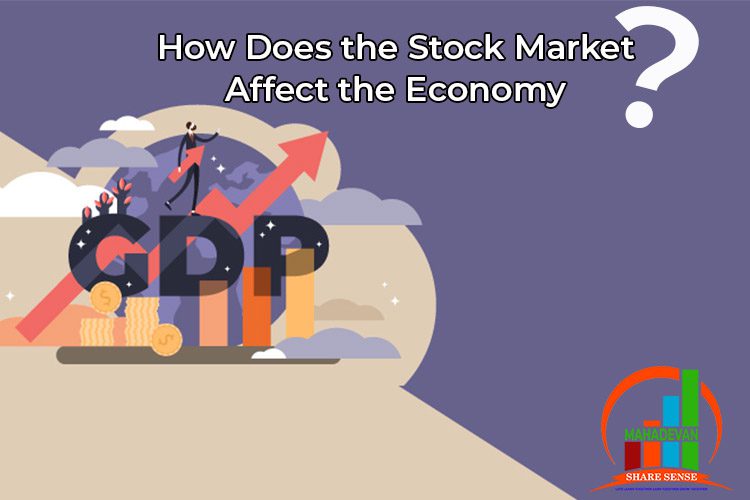

The Indian economy is the 3rd largest economy in the world and it is expected to grow in the future at a considerable rate. The booming economy is expected to see several ups and downs in the stock market which will impact its growth significantly. In this blog, we will discuss how the stock market affects the economy.
From 1994-2005, the share market experienced significant systemic restructuring. During this time, the Indian economy saw a GDP of 6.1%. On the other hand, the Indian share market remained unaffected by the pandemic-led economy crisis during the second wave of Covid-19 in 2021.
The Impact of Stock Market on the Indian Economy
The up and down movement in the stock prices tends to influence various economic factors like consumption and business investment. Just as how the stock market affects the economy, many conditions also impact the stock market.
Let’s find out how the stock market affects the Indian economy:
Wealth Effect
The fluctuations in the price of individual stocks lead to volatility in the market. As prices go up and down, the market volatility influences consumers and businesses. As the prices of stocks go up during the bull phase, it boosts the overall confidence of the economy.
With the bull market, the individuals become more optimistic about the market and buy more goods and services and their spending also rises. So, the businesses that offer these goods and services start producing more and selling more.
Join India’s No#1 Online Stock Market Institute
Also, a large number of investors will enter the market which will push the prices even higher. As a result, the positive movement in the stock market helps contribute towards economic development. But this isn’t always the case.
A positive movement in the stock market does not always guarantee economic growth. If we observe 2021-22, millions of new Demat Accounts opened during this period and the stock market reached all-time highs consistently. But our growth fell in almost every quarter during the financial year. This happened due to the ongoing pandemic crisis.
When Stock Markets Fall
In contrast, when the market is bearish and the prices fall for a considerable period, it affects the market sentiment. The investors lose their optimism and this creates a sense of panic in the market. As a result, the investors aren’t willing to spend more and turn towards the lower risk assets which result in a fall in consumer spending.
Impact on Pension Fund
Any investor with an investment trust or a private pension is affected by the stock market movements directly or indirectly. As many pension funds invest a big amount in stocks, a consistent fall in the prices can impact the value of these funds. This may result in lower payouts in the future. Also, the families will get lower income from pension, which will push them away from saving and spending more money.
Positive Impact on the Bond Market
Whenever a stock market crash happens, it makes the other investment vehicles more attractive to the investors. This results in the investors pulling out their money from shares and investing in gold or bonds. These investment vehicles offer higher returns during periods of uncertainty.
Now that you know how the stock market affects the Indian economy, you should make your investment decisions wisely.














